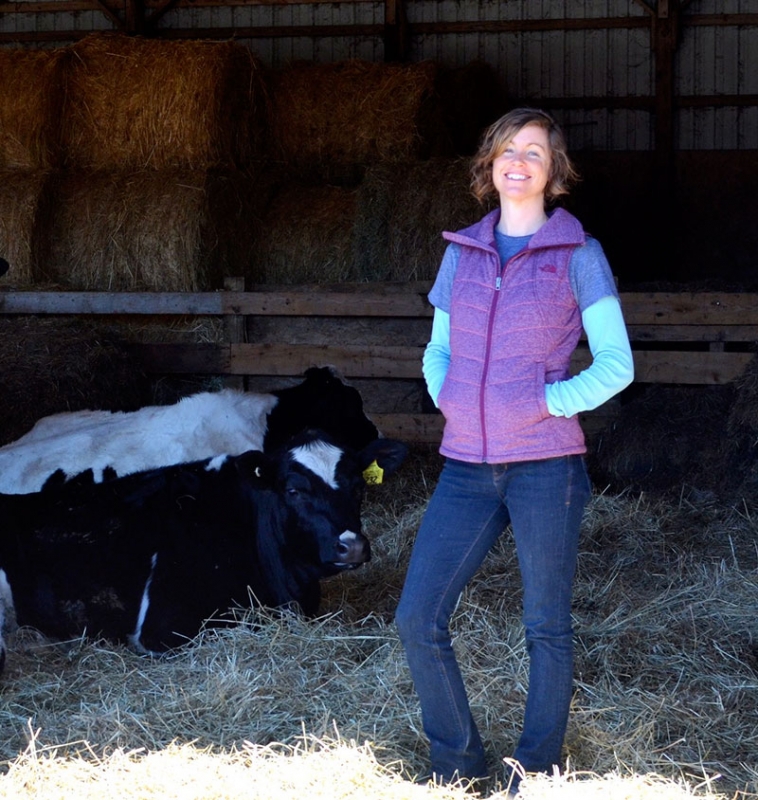Rebecca Brown '01
MAJOR: Environmental Science
CURRENT POSITION: Director, Organic Dairy Farmer Training Program, Wolfe’s Neck Farm, Freeport, Maine
Wondering why organic cheese or milk is sometimes hard to find? Well, there aren’t as many farmers as there used to be—at least in Maine and Northern New England.
“The average age of American dairy farmers is approaching 60, and passing the farm on to the next generation no longer works like it used to,” said Rebecca Brown ’01. “Dairy and livestock are very intensive, especially when you factor in the price of the land and the amount of land needed.”
“And if you weren’t raised on a farm with the complex skill set required, it makes it all the more challenging to be a farmer,” she continued. “Those in the sustainable agriculture industry are looking for a solution.”
And that solution, at least in terms of Brown’s role, is the Organic Dairy Farmer Training Program at Wolfe’s Neck Farm in Freeport, Maine. The effort, of which she is director, will graduate four new farmers every six months who will learn all the necessary skills, business management and pathways to capital to make a successful farm.
The program puts particular emphasis on forage-based farming, which rotationally grazes cattle on plants that grow naturally in the environment. This helps avoid some of the costly feed and other items organic farmers must buy.
“By keeping things simple and expenses low with pasture-based systems, most of the other inputs—like heavy reliance on antibiotics—can be seen for what they are—unnecessary, expensive props to keep a sick animal/farm/system afloat,” Brown said. “Raising animals naturally is a win-win, the quality of the food and the benefits to environment alone are enough to warrant such practices.”
Such practices are also appealing to the consumer.
“People are becoming increasingly aware of what goes into their food and that is driving the demand for organic products,” Brown said. “The organic industry is growing year after year.”
Brown, who was raised on a diversified farm on Martha’s Vineyard, also managed a 35-cow dairy there. She previously served as regional director and biological farming consultant for Midwestern Bio-Ag. She studied environmental science and natural resource management at Union.
“My Union professors were incredibly supportive in allowing me to study sustainable agriculture. I almost transferred to an agriculture school but am very grateful I stayed because I got to learn how to learn for myself,” Brown said. “Union allowed me to explore and discover a new type of practice long before it became well-known and validated by other institutions.”
To learn more about the training program or Rebecca Brown, visit wolfesneckfarm.org

